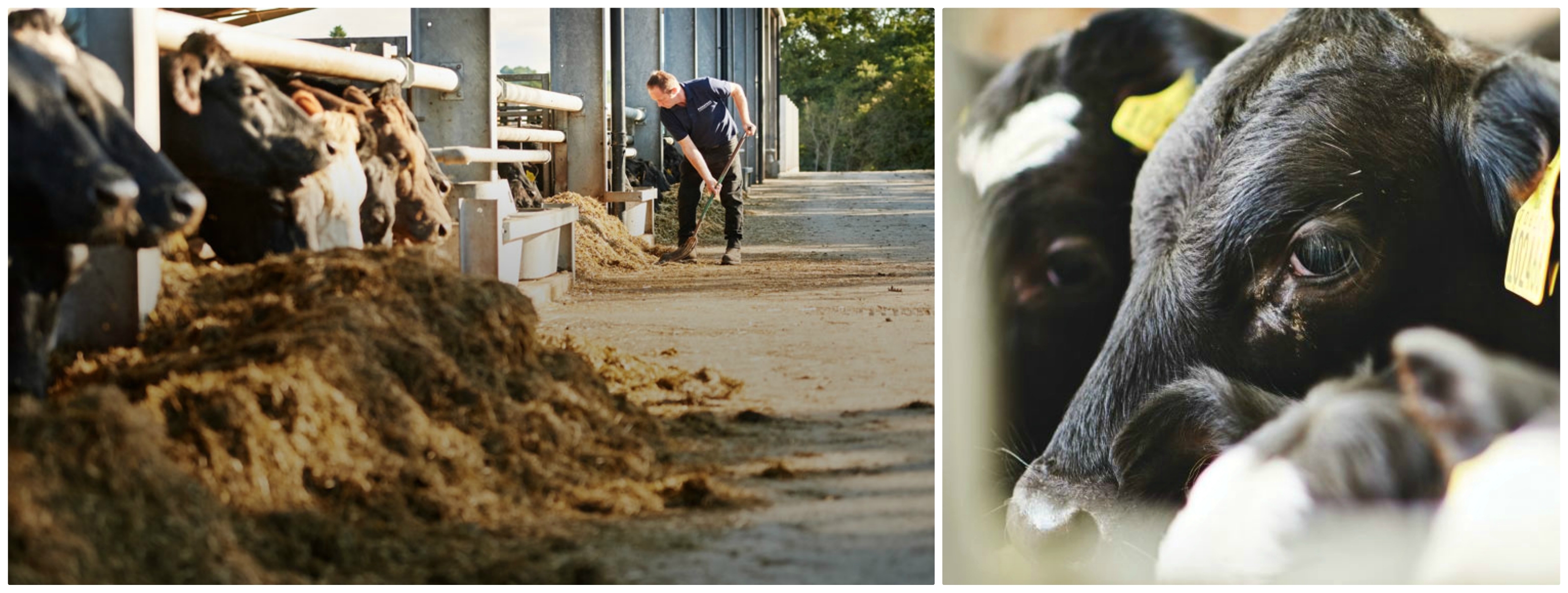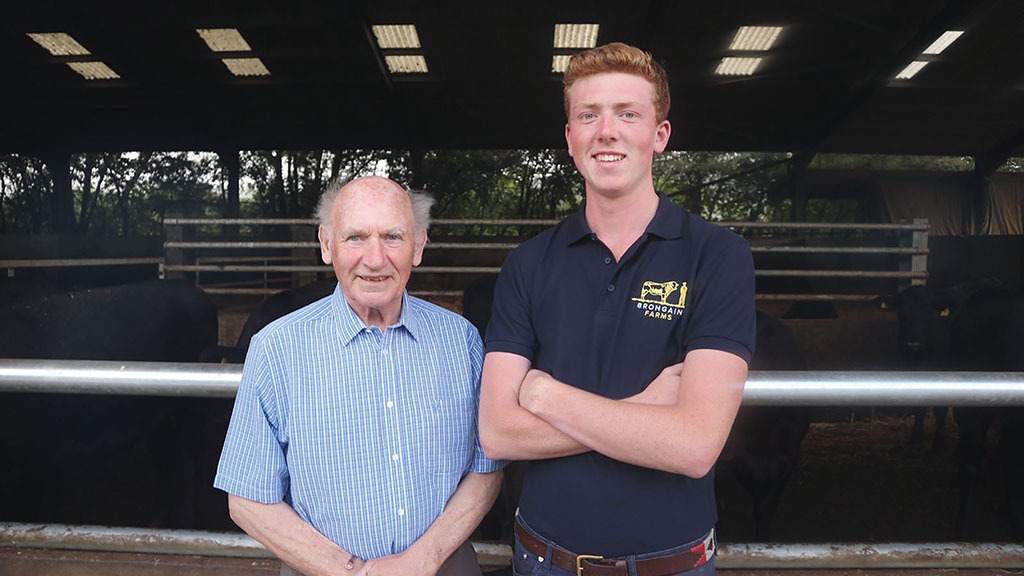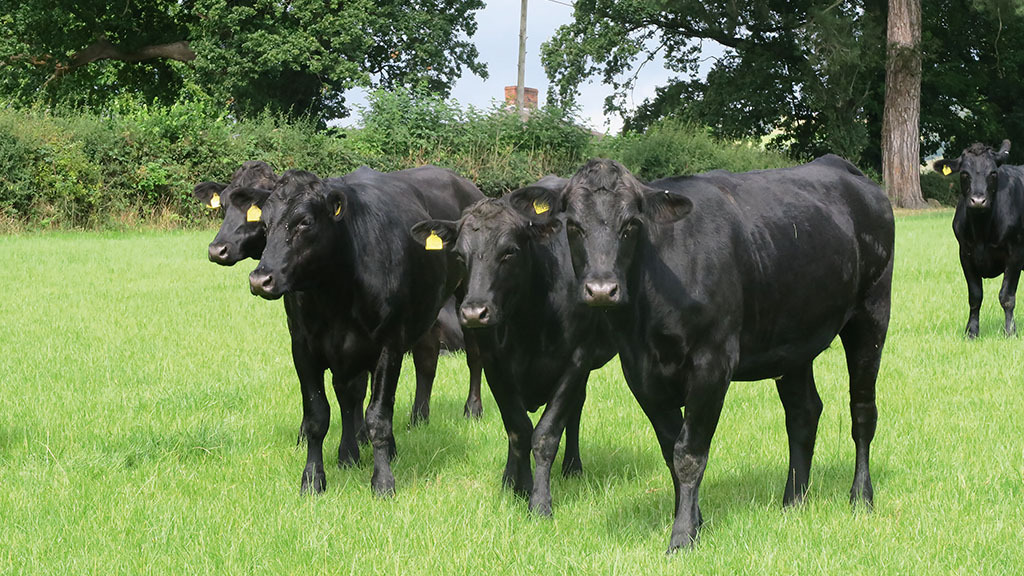Cogent Breeding have teamed up with Pickstock Telford to provide male SexedULTRA 4M semen with a calf buy-back scheme to support a sustainable beef supply chain.
The Angus and Hereford Gold scheme uses the best sires to produce consistent progeny that delivers for the supply chain. Carefully selected, based on desirable traits to deliver a combination of exceptional calf quality and high growth rates, the scheme uses Male sexed Angus and Hereford semen. The aim is to help reduce the quantity of less desirable beef sired heifer calves, and increase revenue from calf sales, by producing an animal that is better suited to the end market.
Feature in this week's Farmers Guardian
_______________________________________________________________________________________________________
The Pickstock family have a longstanding farming heritage and having moved into the processing sector 27 years ago, are now using their expertise at each level of the supply chain to drive forward sustainable beef production.
While the Pickstock Telford business has evolved rapidly over the years with a multi-
million-pound beef processing plant now at its core, the family’s farming heritage remains strong, with three generations now involved in the business.
John Pickstock plays an active role within procurement, while son Greg, managing director, oversees production at their beef processing plant in Telford.

Grandson Rowan also joined the business two years ago to take charge of Brongain Farm, the family’s 1,000-head beef unit in Llanfechain, Powys, which has been newly established as a centre of excellence.
Greg says: “It has been set up to support the development of a more sustainable system of beef production and build relationships within the supply chain.
“We have invested heavily in the farm to allow us to undertake live trials and have installed multiple new technologies.
“The goal is to determine a model of production which consistently delivers a beef animal which is sustainable for farmers while still meeting customer specifications.”
The family has been involved in meat processing since 1992 and went on to purchase a beef processing plant in Ashby in 2004.

Above: John Pickstock with grandson Rowan.
After time, the business outgrew the site leading to the purchase of a greenfield site in Telford, where Greg developed a state-of-the-art multi-million-pound beef processing plant which became operational in 2014.
“By 2016, production had increased to over 300,000 tonnes of beef annually,” he says.
“In 2019 a further expansion of a new food service unit will enable us to supply the food service and retail sectors with sliced, diced and minced beef products too.”
Greg says turnover has increased significantly since opening the new site at Telford, processing more than 100,000 cattle last year, all sourced from British farmers.
“Currently, 75 per cent of our meat is sold into the domestic market, with the other 25 per cent sold worldwide,” he says.
“Building a sustainable business is key at both farm level and processing, and this means environmental sustainability as well as financial.”
The company’s AD plant was one of the first in Great Britain to be utilised by an abattoir and provides electricity and heat for the business, with the surplus running many local homes at evenings and weekends.
“We believe lowering carbon emissions throughout the supply chain enhances and safeguards agriculture for future generations to come,” Greg says.
They are also vital to employment in the area, with 360 workers at the processing plant, some of whom are locals from within a five-mile radius of the farm.
The work being carried out at Brongain Farm is a fundamental part of the sustainability programme and the whole process. Rearing through to finishing is being reviewed, and it is Rowan who manages the 1,000-head beef unit.
He is heavily involved in business decisions and new developments, working alongside key experts and partners within the industry.
“We run a semi-extensive system, turning cattle out to grass over the summer with the aim of finishing them at about 21 months old,” says Rowan.
“We will purchase two to three-week-old registered Aberdeen-
Angus or Hereford selected sired calves from trusted dairy farmers within a 40-mile radius which
adhere to agreed health protocols.”
Rowans adds that it is crucial calves have the best start, to support consistent lifetime growth rates, therefore leading to earlier finishing ages while still hitting carcase specifications, and ultimately achieving financial sustainability at farm level.
He says: “We are focusing on four key areas – genetics, animal welfare, the environment, and management.
“Recent developments at the unit means we can now closely monitor animal performance and cost of production, which helps us to trial, test and adapt new ideas to improve efficiency.”
With genetics being a fundamental part of producing consistent progeny, Rowan says the team has also been working with industry experts and proven data to develop a beef animal which is feasible for the whole supply chain.
Rowan says: “We’ve teamed up with a leading genetics company to develop carefully selected male Angus and Hereford sexed semen.
“The aim is to minimise the amount of less desirable heifer calves in the supply chain and help dairy farmers increase revenue from calf sales, by improving calf performance, consistency and meat quality.”
Reducing antibiotic use is an area where the beef industry is making headway but, remains a key focus with work still to be done.
“Animal welfare is always paramount, so achieving a high health status, and fine-tuning management practices to allow minimal antibiotic use without compromising welfare, is the goal,” says Rowan. “We’re working closely alongside our vet to implement a number of protocols including strict vaccination programmes.
“We’ve also invested in building design, ventilation, and automatic calf feeders with the aim to reduce the need for antibiotics, as well as monitoring performance.”
The work being carried out at Brongain Farm is a fundamental part of the sustainability programme and the whole process. Rearing through to finishing is being reviewed, and it is Rowan who manages the 1,000-head beef unit.
He is heavily involved in business decisions and new developments, working alongside key experts and partners within the industry.
“We run a semi-extensive system, turning cattle out to grass over the summer with the aim of finishing them at about 21 months old,” says Rowan.
“We will purchase two to three-week-old registered Aberdeen-Angus or Hereford selected sired calves from trusted dairy farmers within a 40-mile radius which adhere to agreed health protocols.”
Rowans adds that it is crucial calves have the best start, to support consistent lifetime growth rates, therefore leading to earlier finishing ages while still hitting carcase specifications, and ultimately achieving financial sustainability at farm level.
He says: “We are focusing on four key areas – genetics, animal welfare, the environment, and management.
“Recent developments at the unit means we can now closely monitor animal performance and cost of production, which helps us to trial, test and adapt new ideas to improve efficiency.”
With genetics being a fundamental part of producing consistent progeny, Rowan says the team has also been working with industry experts and proven data to develop a beef animal which is feasible for the whole supply chain.
Rowan says: “We’ve teamed up with a leading genetics company to develop carefully selected male Angus and Hereford sexed semen.
“The aim is to minimise the amount of less desirable heifer calves in the supply chain and help dairy farmers increase revenue from calf sales, by improving calf performance, consistency and meat quality.”
Reducing antibiotic use is an area where the beef industry is making headway but, remains a key focus with work still to be done.
“Animal welfare is always paramount, so achieving a high health status, and fine-tuning management practices to allow minimal antibiotic use without compromising welfare, is the goal,” says Rowan. “We’re working closely alongside our vet to implement a number of protocols including strict vaccination programmes.
“We’ve also invested in building design, ventilation, and automatic calf feeders with the aim to reduce the need for antibiotics, as well as monitoring performance.”
Farm facts
- 1,000 cattle
- Purchase Aberdeen Angus and Hereford calves at two weeks old from selected dairy farms within a 40-mile radius
- Cattle finished at Pickstock Telford at 21 months
- 75 per cent of beef is sold to the domestic market and 25 per cent worldwide
- Focus on genetics to minimise the amount of less desirable heifer calves in the supply chain

Processing plant facts
- Over 100,000 cattle finished a year
- Employee 360 staff
- 100% British cattle
- AD plant produced 4,036,200 KW